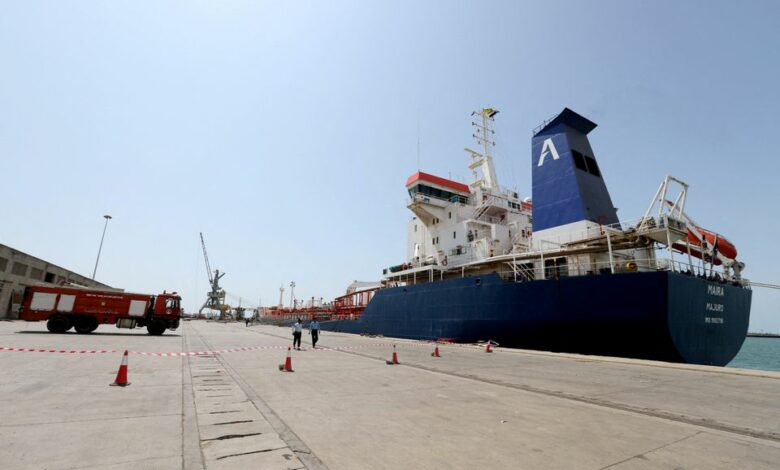
CAIRO, Jan 8 (Reuters) – The Saudi-led coalition fighting in Yemen believes the use by Huthi forces of two ports as military bases would turn them into legitimate military targets, coalition spokesman Brigadier General Turki al-Malki said on Saturday.
The ports of Hodeidah and Salif are controlled by the Iran-aligned Huthi movement and the Saudi-led coalition has said the Huthis use them as launching points for military and marine operations.
“We do not want to target the ports … We want to reach a comprehensive political solution,” al-Malki told a press conference, but added that if the Huthis use any civilian sites they forfeit immunity thus making the ports targets.
In what appeared to be a denial of the coalition accusations, Huthi deputy foreign minister Hussein al-Ezzi said that a United Nations mission has been carrying out daily and weekly visits to the ports of Hodeidah province since the Stockholm agreement, the group’s Al-Masirah TV reported on Saturday after the coalition press conference.
The Stockholm agreement was signed in 2018 between Yemen’s warring parties, aiming to keep the ports operational.
Air and sea access to Huthi-held areas is controlled by the Saudi-led coalition, which intervened in Yemen in early 2015 after the movement ousted the internationally recognised government from the capital Sanaa.
Huthi forces on Sunday hijacked a United Arab Emirates-flagged cargo vessel that they said was engaged in “hostile acts”, but which the military alliance led by Riyadh said was carrying hospital equipment, part of a struggle to assert control over imports into the country.
Restrictions on the import of fuel and other goods into Yemen, where 16 million people don’t have enough food reliably available and millions are on the brink of famine, have been a key point of contention in the conflict.
The Huthis said on Wednesday that the coalition had diverted to a Saudi port a fifth fuel vessel heading for Hodeidah.
Reporting by Yomna Ehab and Ahmed Tolba Writing by Moataz Mohamed Editing by Toby Chopra, David Holmes and Frances Kerry



